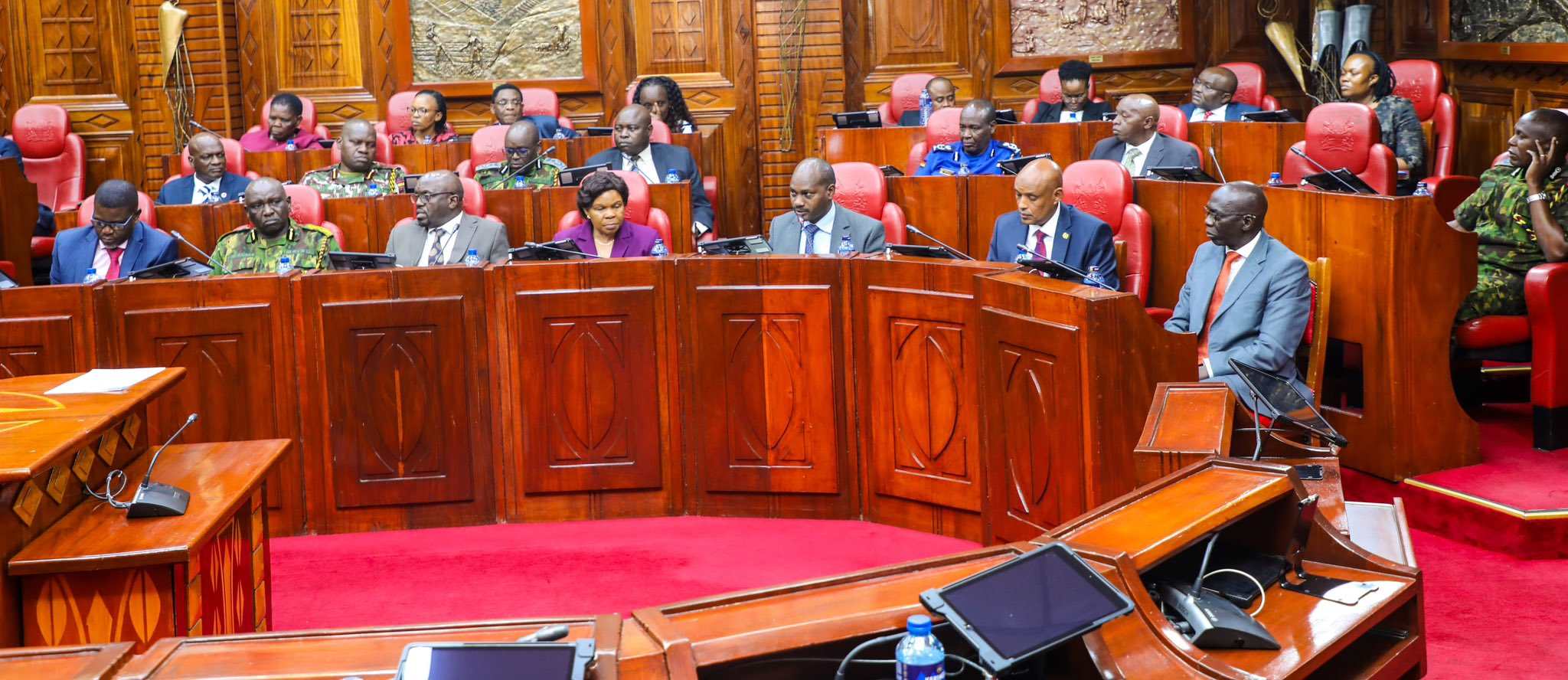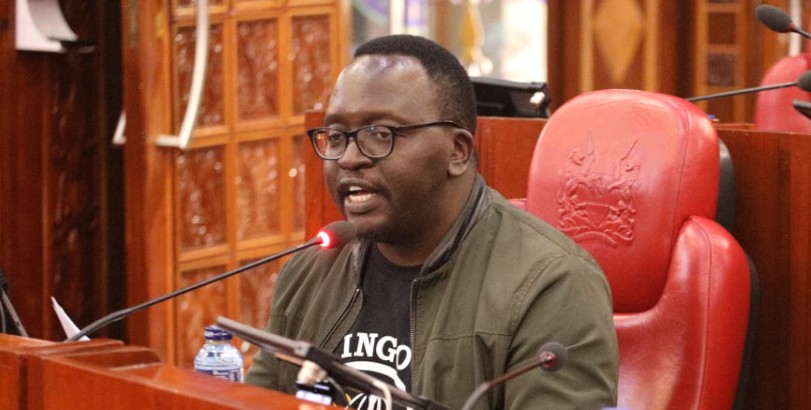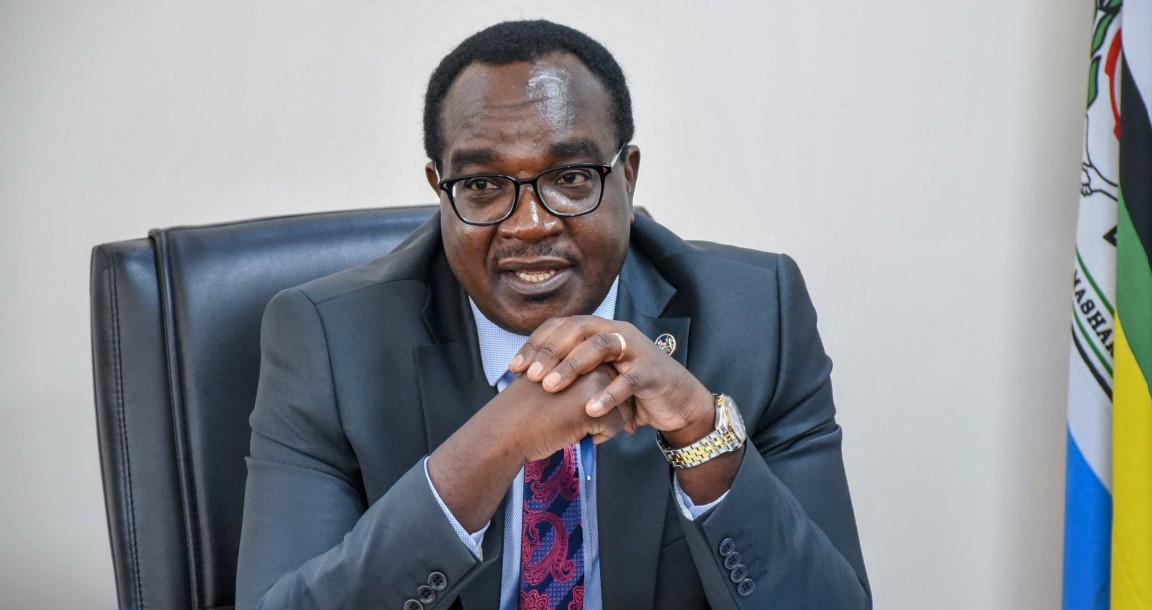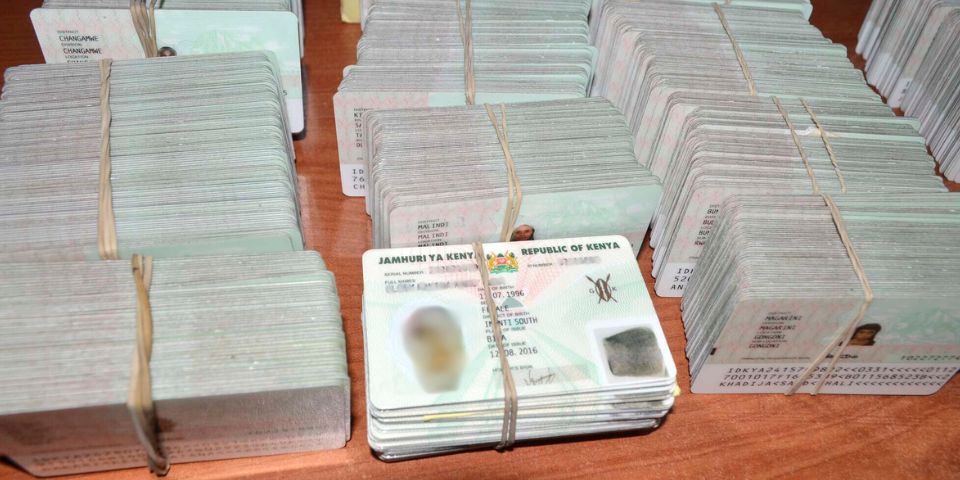Overlapping mandates fueling standoff between police service and commission - MPs

The House committee acknowledged that the tension stems from ambiguity over the distinct roles and powers of the Inspector General and the Commission.
Members of Parliament have now blamed overlapping mandates in the Constitution for the ongoing friction between the National Police Service (NPS) and the National Police Service Commission (NPSC), warning that unresolved conflicts could compromise the cohesion and effectiveness of the police service.
In a session on Tuesday, the Committee on Implementation of the Constitution, chaired by MP Caroli Omondi, attributed the standoff to differing interpretations of Articles 245 and 246.
More To Read
- Senate orders insurers to compensate injured police officers within 14 days
- High Court: NPSC has no authority to recruit, promote police officers
- National Police Service Commission says court lacks jurisdiction on recruitment
- Government seeks out-of-court deal to end police recruitment stalemate
- NPSC introduces tough measures against corruption in police hiring
- Police recruitment exercise postponed indefinitely after court order
The committee acknowledged that the tension stems from ambiguity over the distinct roles and powers of the Inspector General and the Commission. Legislators cautioned that if left unresolved, the dispute could fracture the integrity and unity of the police service.
“Much of this tension is rooted in Articles 245 and 246 of the Constitution, which outline separate but overlapping responsibilities for the IG and the Commission,” the committee said.
Article 245 vests the IG with operational command of the NPS, including implementing policy decisions, coordinating police operations nationwide and deploying officers below the rank of Superintendent.
Article 246, in contrast, establishes the NPSC as the body responsible for human resource management within the police service, covering recruitment, appointments, promotions, transfers, disciplinary oversight and supervision of training standards and curricula.
The Committee explained that rising tensions over the allocation of funds for new police recruitment stem from the NPSC’s concerns that budgets were being channelled to the NPS, effectively sidelining the Commission’s independent mandate to oversee recruitment processes.
“Control of payroll and other overlapping human resource functions remains a key flashpoint. The Commission insists payroll management squarely falls within its constitutional mandate, while the IG maintains that relinquishing this function would erode his authority over police operations,” the committee added.
The committee resolved to call for further consultations with key stakeholders before making recommendations to the House, aiming to provide a definitive position on the matter.
The ongoing disputes have now spilt into the courts. A public interest group, through lawyer Shadrack Wambui, recently filed an urgent application seeking to suspend the planned recruitment of 10,000 police officers until a case challenging the management of the NPS payroll is heard.
The petition, filed on August 11, 2025, argues that the recruitment exercise is directly tied to the payroll system, whose constitutional management remains in dispute.
The court had directed on August 13 that the petition be served within three days and responses filed within seven. However, the petitioners claim that, despite serving the respondents and interested parties, no replies have been filed, leaving the case uncontested.
“Allowing recruitment to proceed before the constitutional issue is resolved would lead to payroll entries for 10,000 new officers being made under disputed authority, potentially rendering the petition meaningless if the court rules in our favour,” the petitioners said.
They further described payroll administration as the “primary instrument” for implementing human resource decisions such as recruitment, promotions, transfers, suspensions and disciplinary action. Any ambiguity over its control, they argued, could destabilise the police service and erode public confidence.
Despite the legal challenge, the NPSC has moved forward with preparations for the recruitment drive. On September 5, the Commission adopted the National Police Service Commission (Recruitment and Appointment) Regulations, 2025, during a meeting in Mombasa.
The regulations provide a comprehensive roadmap for recruiting 10,000 constables, covering advertising vacancies, vetting candidates and reporting successful recruits to training colleges. The framework replaces the 2015 regulations, closing gaps and incorporating emerging trends in policing and human resource management, with a focus on fairness, transparency and merit-based selection.
Recruitment is expected to commence immediately, with the first batch of recruits reporting later this year.
Top Stories Today











































